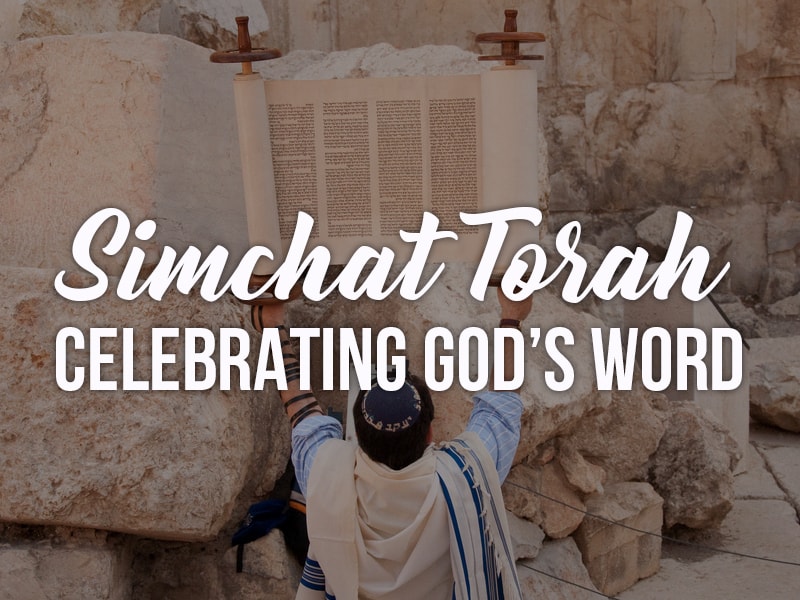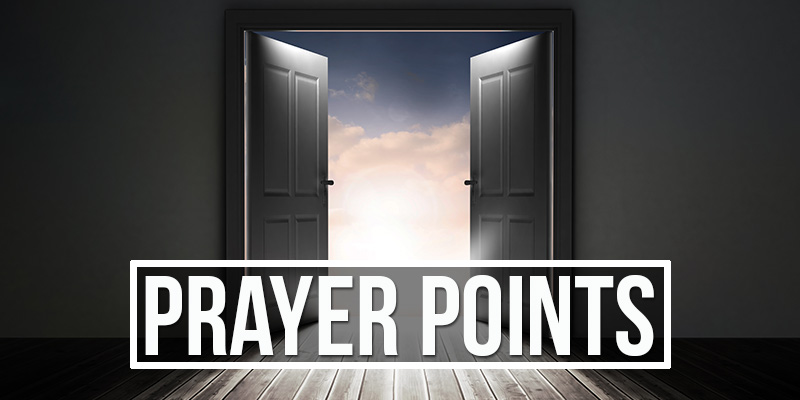Guillermo Maldonado | Divine Encounter with The Holy Spirit


A new survey of Arab citizens of Israel finds their attitudes toward the Jewish State and its institutions to be more positive than previously thought.
The survey results, published in The Jerusalem Post this week, showed that 60 percent of Israeli Arabs have a favorable view of the State of Israel, while only 37 percent report their view as unfavorable.
The poll, released last week, was conducted by the Konrad Adenauer Program for Jewish-Arab Cooperation at Tel Aviv University and Keevoon, a global research company.
Broken out by religious faith, 49 percent who identified themselves as Muslims view the Jewish State favorably, compared with 48 percent who say their view is unfavorable. Among Christian respondents, 61 percent said their view is favorable compared to 33 percent who reported an unfavorable view.
Itamar Radai, Academic Director of the Adenauer Program and a scholar at Tel Aviv University, said he found the number of favorable responses “quite remarkably high.”
Racism, however, was listed as a top concern by respondents. Nearly half said they feel “generally treated unequally” as Arab citizens.
Surprising and significant
Among the most surprising and significant findings was the response to the question, “Which term best describes you?” The largest number, 28 percent, replied “Israeli Arab,” while 11 percent said “Israeli,” 13 percent said “Arab citizen of Israel” and 2 percent said “Israeli Muslim.”
Only 15 percent of respondents said “Palestinian,” while 4 percent said “Palestinian in Israel,” 3 percent said “Palestinian citizen in Israel” and 2 percent said “Israeli Palestinian.”
“The bottom line is there is more identification with Israel than with a possible Palestinian state,” says Michael Borchard, a director at the Konrad Adenauer Program.
Borchard also highlighted that nearly two-thirds of Arab citizens surveyed said Israel is a “positive” place to live, with only one-third saying it is negative. Respondents also gave high marks to the country for having a “strong” degree of personal freedom and a “strong” amount of stability.
The survey asked citizen respondents to rate on a scale of 1–10 how much sense of “belonging” to the State of Israel they feel (with 10 being the highest level of “belonging.”) Forty-five percent gave responses between 8 and 10, 17 percent between 5 and 7 and 35 percent between 1 and 4.
For the poll, researchers surveyed 876 citizens of Israel and 125 permanent residents of East Jerusalem.
The 'Palestinian issue'
In another key revelation, the survey found that Arab citizens of Israel are more concerned about the economy, crime and equality than the “Palestinian issue.” When asked which issue most concerns them, 22 percent said personal security and crime, and an equal number said racism. Fifteen percent said the economy and jobs are their top concern, while 13 percent cited the “Palestinian issue.”
When asked about policy implications of the survey, Brochard said he believes “Israel should do more to answer this rather positive attitude and be more inclusive.”
Yousef Jabareen, an Israeli Arab and member of the Knesset (Israel’s legislature), responded differently to the findings, saying they might be misleading in terms of how Israeli Arabs view their situation.
More participation “is our demand, but it’s the government that excludes us and has this campaign of delegitimization,” Jabareen said. “Participation is an aspiration, but it doesn’t reflect the situation on the ground.”
Takeaways
As a Believer in Yeshua (Jesus) who lives in America, I experience a nonstop drumbeat of negative opinions about Jewish people and Israel – certainly in the news media. Perhaps you see it too.
Yet, here’s a new survey saying that even Arabs who live in Israel have a more positive view of the Jewish State than we’ve been led to believe. First, that’s good news.
But it’s also a reminder that we need to be more careful about how we filter news reports that put a consistent negative spin on events in Israel.
This flow of misinformation and bias feeds the growth of anti-Semitism and anti-Israel sentiment worldwide and, I believe, encourages racist movements like Boycott, Divest and Sanction.
Still, we can take heart in the good news coming out of Israel. And it’s my pleasure to share it with you today, because I know that, like me, you care deeply about the Jewish people, their security and their future.
Celebrate and stand with Israel!
Thank you so much for reading along with me. And thanks also for your interest in and support of Jewish Voice Ministries. I’d love to know you’re standing with Israel today. Your online gift of support is one way you can do that right now.
If you feel called to give to support the Jewish people, your gift would be a welcome blessing to them and to us. You’ll provide a variety of humanitarian and spiritual aid and, most important, the chance for them to hear the Good News: Yeshua is Messiah!
As a token of our appreciation for your gift of $15 or more today, we’ll send you two encouraging resources. The Pray for the Peace of Jerusalem Mug and the JVMI Stand with Israel Car Magnet will both show that you stand with Jerusalem and the Jewish people.
We are so grateful for your support. Together we are seeing lives transformed with healing, hope and the Good News of Yeshua.
Do you want to know how to pray for Israel in greater detail and depth? Jewish Voice Ministries has put together this Intercessory Prayer Guide for Israel that provides focused, targeted requests to help you pray for the nation of God’s People. We hope this prayer guide can help both Messianic Jews and Christians pray their support for Israel.

The Torah contains the first five books of the Holy Scriptures and is Judaism’s most revered text. In it, we discover the God of Creation and learn the history of Israel. We receive His Law and find the first prophetic promise of mankind’s redemption.
Each year, Messianic Jews along with the Jewish community read through the Torah in weekly segments called the parasha (para-ah-SHAH). The yearly schedule of readings ends on the morning of Simchat Torah and begins again that evening.
In a morning service, worshippers read the final parasha of the cycle and celebrate this holy gift from God – His holy Word. Participants rejoice with festive dancing and singing while the Torah scroll is carried around the synagogue or public square by as many people as possible, each in turn.
Messianic Jews identify Simchat Torah as a time to rejoice also in God’s Word given through the remainder of the Tenach (Old Covenant Scriptures), New Covenant writings, and in Yeshua (Jesus) Himself, who is called the Word of God (Revelation 19:13).
Scripture is alive with the breath of God. It is “inspired” (2 Timothy 3:16), meaning “God-breathed.”
Hebrews 4:12 tells us that the Word of God is active, performing His work in us “piercing right through to a separation of the soul and spirit” and is “able to judge thoughts and intentions of the heart.”
The Word of God cleanses us (Ephesians 5:26) and is a vital tool in transforming us by renewing our minds with truth (Romans 12:2).
God’s Word is where He reveals Himself to us. It displays His holiness, majesty and power. It exposes our sin and separation from God and proclaims His plan of redemption through Messiah Yeshua. In the Scriptures, we meet God’s love and compassion, His message of deliverance, and find encouragement and hope for each new day.
As Messianic Jews join the Jewish community in celebrating the joy of the Torah, we hope you will take time to celebrate the amazing gift of God’s Word. In many parts of the world, Believers are not able to hold the Word of God in their hands to read it for themselves. We are blessed and privileged when we have this treasure available to us. For many of us, it as close as our nightstand or desk. May we recognize its value and renew our dedication to feasting on God’s Word.
Study the Torah the first five books of the Bible through the eyes of a first-century disciple. “Teachings of the Torah” invites you into the questions, stories, and interpretations that prove the Bible is a living book.
 Open Doors to the Good News in 5778/2018
Open Doors to the Good News in 5778/2018The Hebrew year 5777 has ended, and we are now in 5778, which some are calling the Year of the Door. This is because Chet, the 8th letter of the Hebrew alphabet, represents the 8 in 5778 and signifies a door. It brings to mind Rav Shaul’s (the apostle Paul’s) words in 1 Corinthians 16:9, regarding how “a great door has opened wide for me, though many are in opposition.”
As we look at the list of upcoming Jewish Voice Ministries Outreaches for 5778/2018, we see six critical doors of opportunity for the healing love and saving power of Yeshua (Jesus) to be made known:
Please join us as we begin to saturate each location with prayer!
Let’s pray:
Thank you, Prayer Partners, for paving the way with your prayers for us to move through the open doors the Lord has for us. May He open doors of favor for you as well!

“But for me, it is good to be near God.” (Psalm 73:28a TLV).
At Sukkot, we celebrate not only God’s presence with the Israelites in the wilderness, but also his presence with us today as His Holy Spirit dwells in all who have professed faith in Messiah Yeshua.
The Lord Almighty is also the God of all comfort (2 Corinthians 1:3). He is always present, and, with His presence, He provides us His deep comfort. The Messianic prophecy found in Isaiah 53:3 tells us that Yeshua (Jesus) was a “man of sorrows and acquainted with grief.” Yeshua walked this sin-scarred earth, and He knows the human heart’s need for comfort amid suffering.
In the midst of suffering, we may think that the only effective comfort would be for the pain to go away, the situation to resolve or the hardship to ease. But in the same way He gives us joy, God offers us comfort that extends beyond our circumstances. And He never leaves us without access to His deep love and comfort.
The Bible tells us that there is abundant comfort through Messiah (2 Corinthians 1:5). God comforts the depressed (2 Corinthians 7:6) and the afflicted (2 Corinthians 1:4). His consolations, guidance and protection comfort the soul (Psalm 94:19, Psalm 23:4).
How has God’s presence comforted you in times past? How can He bring you comfort today?
Shout for joy, heavens! Rejoice, earth! Break forth into ringing shouts, O mountains! For Adonai has comforted His people and has compassion on His afflicted” (Isaiah 49:13 TLV).

But for me, it is good to be near God.” (Psalm 73:28a TLV).
At Sukkot, we celebrate not only God’s presence with the Israelites in the wilderness, but also his presence with us today as His Holy Spirit dwells in all who have professed faith in Messiah Yeshua.
We all want to be known – truly known and understood. No one knows us like God. He knows the good and the bad about us, and He understands the hurts and struggles that trip us up. God knows our frailty. “For He knows our frame. He remembers that we are but dust” (Psalm 103:14).
For some, being fully known can be a bit uncomfortable. After all, each of our lives contains a mix of faith and sin, beauty and ugliness. However, the Bible assures us that “there is now no condemnation for those who are in Messiah Yeshua” and that nothing can change God’s love for us (Romans 8:1, 37-39). So, being completely known by God offers us a comfort and calm that we can find nowhere else.
God is with you always. Today, may you find rest in being fully known by Him.
“Adonai, You searched me and know me. Whenever I sit down or stand up, You know it. You discern my thinking from afar. You observe my journeying and my resting and You are familiar with all my ways. Even before a word is on my tongue, behold, Adonai, You know all about it” (Psalm 139:1-4 TLV).
Discover the meaning and wonder of Rosh Hashanah, Yom Kippur, and Sukkot with this specially designed infographic.